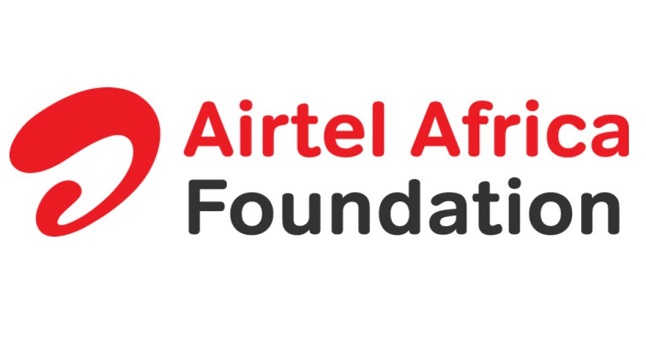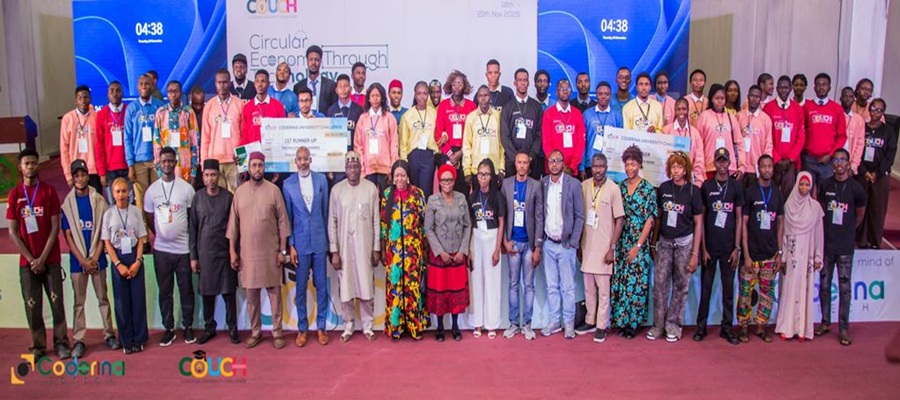Telecom
Challenges of Last mile Infrastructure in Service Delivery

One of the major obstacles to Telecommunications service delivery in the country is absence of last mile infrastructure required to deliver services to consumers of these services at their respective homes and offices.
Last mile infrastructure is that transmission infrastructure telecommunications operators used to deliver services to potential subscribers at their domains. Basically, infrastructure required in this regard includes optic fibre and microwave.
The need for effective transmission infrastructure especially fibre optic which is seen as being reliable become necessary in view of developments in the industry, which is geared towards improving quality of service as well as reduces cost of services to operators and subscribers. For instance, operators have before now relied heavily on satellite communications for their bandwidth requirement as against undersea cable because of unreliability of Sat-3 which then was the only in its category, but, now there are several alternative especially in the undersea cable, where we have Glo 1 and MainOne cable and awaited West Africa Cable System (WACS). The coming of these two telecommunications infrastructure has to a great deal drive down cost of bandwidth. Nigeria CommunicationsWeek investigation revealed that one mega byte per second bandwidth sold for $800 now goes for as low as $300 which is more than 100% reduction. This reduction can only be enjoyed by subscribers of telecommunications services if the needed infrastructure to deliver services to end users are available, in this case last mile fibre optics. But it is not readily available. Nigeria CommunicationsWeek gathered that all undersea cable infrastructure lands at the shores of Lagos and need to extend to different operators’ network switches and to transport this infrastructure from Lagos Island to Mainland area of Lagos will cost an operator $600 per one mega byte if it is to lease fibre optic from another operator that has it.
More so, the absence of this facility forced them to largely adopt microwave and satellite technology, few years ago, over 80 percent of telephone access in the country was rendered through satellite technology. Experts have noted that quality of service delivered using microwave technology is often times affected by atmospheric condition, making the technology not suitable for reliable service delivery compared to fibre optic cable also known as terrestrial infrastructure. But today, this scenario is fast changing as operators are now deploying fibre optic transmission network to improve on their service quality. But more work is still needed in this regard.
A fibre optic cable is made from a glass cladding that (due to its lower refractive index) reflects ‘escaping’ light back into the core, resulting in the light being guided along the fibre.
Currently, the growth and potential earning accruable from telecommunications services in Nigeria economy is comparable to other markets in the world, and the current rate of network growth across the country is impressive.
Quite a number of global technology corporations are extending their operations to Nigeria with multiplier effect on the economy, and international trade between us and other countries of the world.
However, it is encouraging to note that despite the rapid growth of telecommunications in the country, there is still a great opportunity for further growth and even development, as Nigeria being the most populous country in Africa, has an estimated addressable telecommunications market of 100 million subscribers presently. In view of the country’s landscape, she remains major market for long distance network operators due to increasing demand for multi-service, such as voice, data, video as well as rural telephony access.
Experience has shown that in order for predominantly mobile operators to improve on their quality of service, as well as capture multi-service segment of the market, they must invest in fibre optic backbone.
Efforts in this regard
The absence of terrestrial infrastructure in the telecommunication industry is being felt in all service deliveries. For instance, in direct-to-home satellite television broadcasting, it is a common occurrence for service to be disrupted each time it rains, more so, the hope of offering broadband internet service cannot be realized without a fibre optic infrastructure, its absence is responsible for the narrow band services rendered by operators in the sector.
It is against this backdrop that telecommunications giant; Globacom initiated its fibre optic ring project across the country. So far, it has completed Abuja to Kano, Minna, Enugu, Owerri, Uyo among others even as works on the last link between Lagos and Benin has reached advance stage.
Nigeria Telecommunications Limited (Nitel) has fibre optic ring that is not being used probably because of the monopolistic tendencies of the moribund company, which resulted in the federal government parastatal’s refusal to lease out the infrastructure to GSM operators that requested for it during their early roll out plan.
This however led to them embarking on similar project. MTN in order to meet the growing high-capacity transport and connectivity needs of the industry has almost completed a world-class quality Metropolitan Area Fibre Networks in Ibadan, Kano, Warri, and Aba. When completed, it will support anticipated voice, data and video growth in these cities by providing superior transmission capacity, reliability, robustness and quality service. This is in addition to 3,885km of fibre optic backbone networks popularly referred to as ‘Blaze’ network. Blaze was implemented in four phases, namely: Phases 1 and 2 southern and eastern rings with a total of 2,422km. Phase 3, Northern ring with a total span of 1,116km, Phase 4 Niger Delta with a total span of 347km. MTN is leveraging on this infrastructure to provide connectivity of some commercial banks as well as Central Bank of Nigeria.
Zain is not left out in this effort to improve service through effective transmission infrastructure of fibre optic. The company having taken delivery of its first fibre optic project 4,000km from Nokia Siemans has awarded another contract to the same company for the expansion of its existing 4,000km nationwide fiber backbone network by a further 6,000km.
Zain Nigeria, explained that the aim of the project is to create wide capacity for Nigeria’s growing number of customers demanding high quality broadband services by deploying self owned fiber.
Zain awarded the original project in November 2007, but Nokia Siemens Networks speed up the project’s preliminary deadline of June 2009, and completed Phase 1 of the project by end February. This phase 2 of the project has been completed.
In essence, Nigeria will begin to witness emergence of an improved and unlimited telecom services, massive expansion of networks and benefits or their existing market goodwill, and a significant increase in the demand for multi-service.
The market will begin to offer bundled services, as costs come down. The competition between wireless and wired line services would begin to grow.
Impact
Gbenga Adebayo, chief executive officer, Communications Network support service, said that aside improved transmission of voice call, data and video occasion by the expansion of fibre optic by telcos, there will be emergence of wired services. He said wired line services offer multi-service at very affordable rate without compromise on quality. According to him, the fixed nature of the service of wired line, provide for a long tern relationship between operators of the service and their customer. He said that, market research has shown that in the urban areas, a large number of residential customers have a higher retention of their fixed lines with better quality than mobile services.
Deolu Ogunbanjo, president of National Association of Telecommunications subscribers of Nigeria (Natcomms) said that transmission of telecommunication services via microwave contributes to poor quality of service being experienced by subscribers of telecom services, and that with a shift to more effective transmission by fibre optic backbone, Nigeria subscribers will begin to witness unmatched service delivery especially in video, and data service.
It is a known fact that challenges for wired network operators in the country range from the difficulty in infrastructure deployment, right of way approval processes, and unwillingness of operators to co-share ducts among others. But as these are gradually being addressed through the growing of national fibre optic transmission backbone, Nigerians are expecting the emergence of wired line services as telecommunications development is moving to the next level of value added which ultimately required bandwidth.
Telecom
Airtel Africa Foundation Opens Undergraduate Scholarship Portal in Nigeria

The Airtel Africa Foundation has opened applications for its Undergraduate Tech Scholarship in Nigeria, inviting first-year university students with strong academic potential to apply for financial support aimed at accelerating their studies in technology and related fields.

The scheme provides full tuition, accommodation support, and essential study materials for eligible 100-level students. It forms part of the Foundation’s F.E.E.D. agenda, which promotes Financial Empowerment, Education, Environmental Protection, and Digital Inclusion, with a focus on creating pathways for talented young people who face financial barriers.
Airtel Nigeria CEO, Dinesh Balsingh, encouraged students to take advantage of the opportunity. He noted that, “Education is one of the most powerful tools for national development,” adding that “as an organisation, Airtel is determined to build a platform for aspiring young Nigerians to learn, innovate and lead in the country’s expanding technology landscape.”
Applications are open to students pursuing courses such as Information Technology, Computer Science, Software Engineering, Data Science, Cyber Security, Artificial Intelligence, and other ICT-related disciplines at participating universities: University of Lagos, University of Nigeria Nsukka, Ahmadu Bello University, University of Benin, Obafemi Awolowo University, University of Ilorin, and Tai Solarin University of Education.
Dr Segun Ogunsanya, Chairman of the Airtel Africa Foundation, said the scholarship demonstrates the organisation’s commitment to nurturing Africa’s next generation of digital leaders. “Young Africans are brimming with talent and ambition. What many need is a fair chance to pursue their education without financial pressure. This scholarship reflects our belief that investing in their growth will strengthen communities, empower families, and expand the continent’s digital future,” he said.
Applicants must be enrolled in 100-level, have scored at least 230 in JAMB, and hold a minimum of five credits in WAEC, including English and Mathematics, in a single sitting. Required documents include Joint Admissions and Matriculation Board (JAMB) results, university admission letter, West African Examination Council (WAEC) certificate, student identity card, and academic transcript or university results.
The Foundation encourages qualified students across the listed institutions to apply and position themselves for a stronger start in the technology sector. Applications can be submitted at candidate.scholastica.ng/schemes/airtelfellowship2025.
Telecom
YouTube Nigeria Unveils 2025’s Top Lists and Launches New YouTube Recap Feature

YouTube Nigeria on Wednesday released its official 2025 Top Lists, celebrating the nation’s leading music videos and creators, while also unveiling a new personalized feature called YouTube Recap.

YouTube
The lists highlight the explosive growth of Afrobeats, gospel, and Nollywood storytelling, underscoring Nigeria’s rising influence in global entertainment.
According to YouTube, the most-watched music video in Nigeria this year was No Turning Back II by Gaise Baba and Lawrence Oyor, followed by Shallipopi’s Laho and Davido’s With You featuring Omah Lay. Other artists on the Top 10 include Olamide, Asake, Rema, Chella, Wizkid, and Burna Boy.
On the creators’ side, Nollywood channels such as Omoni Oboli TV, Itelediconstudio, and Uchenna Mbunabo TV dominated the rankings, alongside comedy sensation Brain Jotter, who continues to attract millions of viewers with his skits.
Addy Awofisayo, YouTube’s Head of Music for Sub-Saharan Africa, said the lists reflect Nigeria’s “undeniable creative energy” and the global resonance of its artists and storytellers.
“From chart-topping music to must-watch Nollywood dramas, we’re proud that YouTube is the place where this talent can shine,” Awofisayo said.
The newly launched YouTube Recap feature offers users a personalized year-end summary of their viewing habits. It includes highlights such as top-watched channels, favorite topics, and a “Personality Type” card that categorizes viewers into one of 14 personas. It also reveals whether users rank among the top 25 per cent of fans for their favorite creators.
YouTube said the recap is accessible via a banner on the homepage of the app.
The company noted that the initiative aims to give Nigerians a fun and shareable way to celebrate the videos that defined their year
Telecom
COUCH 2025 Grand Finale Highlights Student Breakthroughs, Secures Government Pledge for University Research Commercialization

Coderina Education and Technology Foundation, in partnership with the National Universities Commission (NUC), successfully hosted the Grand Finale of the Coderina University Challenge (COUCH) 2025 at the NUC Auditorium, Abuja.

A cross section of attendees
The event gathered top government officials, university leaders, industry partners, and the ten finalist teams selected from over sixty-two initial entries nationwide.
This year’s challenge, themed “Circular Economy Through Technology” spotlighted the potential of Nigerian university students to develop scalable, tech-enabled solutions that address pressing national issues in sustainability, waste management, energy transition, and the circular economy.
The Grand Finale reaffirmed a consistent message shared across all keynote addresses: Nigeria must accelerate the movement of university research from shelves into practical innovation, commercialization, and industry adoption, a key driver of national development and economic growth.
In his opening address, Mr. Olufemi Niyi, chairman, Coderina Board of Directors, emphasized that university projects must not remain buried in archives.
He highlighted COUCH as a platform proving that research can become functional innovation.
Mr. Niyi called on donors, development partners, and private sector stakeholders to support COUCH as a sustainable national innovation pipeline and encouraged investors to channel resources into skills development and technology innovation among youth.
In his keynote address, Dr. Kingsley Tochukwu, the minister of Innovation, Science and Technology, commended the COUCH programme for its role in moving research “from the shelves to the marketplace,” a key priority under the ministry’s national innovation agenda.
He noted that the initiative exemplifies the type of collaboration and commercialization pipeline needed to unlock Nigeria’s scientific and technological potential.
He highlighted several priority areas critical to advancing the country’s innovation landscape:
“Strengthening Nigeria’s innovation ecosystem through coordinated national frameworks and partnerships; expanding digital innovation pathways to accelerate the adoption of emerging technologies, and building a tech-driven economy that delivers measurable value and global competitiveness”.
The Minister added that “Creating new opportunities for youth innovators, ensuring they are empowered to participate in and drive the innovation economy, are part of the key focus areas of the Ministry
He also expressed the Ministry’s readiness to partner with COUCH, Coderina, and the NUC to incubate and scale these student-led innovations.
Mallam Abdullahi Yusuf Ribadu, the executive secretary of NUC acknowledged the twelve universities nominated for the pilot edition by the commission.
He urged the finalists to use their prize money to advance entrepreneurship and technical skill development, reinforcing the NUC’s commitment to fostering innovation-driven learning across tertiary institutions.
In a remarkable commitment, the Minister donated five million naira to ‘Waste2Light’ from FUT Minna and announced an intention to collaborate with all ten finalist universities to support commercialization.
Dr. Tope Kolade Fasua, special address to the President on Economic Affairs, stated that technology remains the largest driver of global economic growth, stressing that Nigeria’s economic transformation is intertwined with youth innovation.
He commended Coderina and advised for greater visibility and national media outreach; creation of an innovation “museum or archive” for brilliant ideas, and the establishment of centers where theories and research can be turned into products.
He concluded that the future of Nigeria’s economy lies in the hands of today’s young innovators.
Professor Sa’adatu Hassan Liman, special guest at the programme and vice-chancellor, Nasarawa State University, delivering her address on “Sustainable National Transformation,” emphasized the need for stronger industry–university collaborations.
She also emphasized need for entrepreneurial university culture; digital literacy in emerging technologies such as AI, blockchain, IoT; adoption of virtual learning and remote laboratories, and inclusive innovation for underserved communities.
She highlighted AI as a catalyst for reimagining teaching and learning, including teacher retraining and curriculum enhancement.
The competition had two categories of prizes recognizing both technical excellence and public engagement.
Winners of the first category, The Challenge, based on pitch and prototype presentation was Team IMSU – Imo State University , taking home the star prize of ₦5,000,000; 2nd Place winners: Team Neuronaut Nile University Prize, ₦2,500,000, and 3rd Place – Team Waste2light from the Federal University of Technology, Minna: ₦1,500,000.
The People’s Choice Awards winners, based on social media engagement and public voting, are Team ADSU Innovators – Adamawa State Uni.: ₦250,000; 2nd Place -Team Scraplink, Lagos State University: ₦150,000, and 3rd place – Team Circle from the Federal University of Technology, Akure, took home ₦100,000.
Giving COUCH overview, Ms. Christiana Anthony, the Project Lead, reaffirmed that COUCH is not merely a competition but a structured innovation development program.
She highlighted the strong collaboration between Coderina and the NUC, noting that the program has created a national pathway for students to design, build, test, and pitch solutions with real potential for commercialization.
The COUCH 2025 grand finale demonstrated Nigeria’s readiness to harness university-driven innovation as a catalyst for economic growth, job creation, and sustainable development.

 Telecom3 days ago
Telecom3 days agoNigeria Dominates 2025 TikTok Sub-Saharan Africa Awards with Six Wins

 E-Business3 days ago
E-Business3 days agoReport Reveals Half of 2025’s Compromised Passwords were Already Leaked

 E-Financial3 days ago
E-Financial3 days agoFG, SEC, NGX Group Agree on Capital Gains Tax Reform

 Broadcasting3 days ago
Broadcasting3 days agoEFCC Arik Case: Witness Testifies on Receiver Manager Nominee’s Role in NG Eagle Shareholding

 E-Financial3 days ago
E-Financial3 days agoA Nation on Alert: Is FIRS’ Xpress Payments Move Consolidating a Revenue Cartel?

 E-Financial2 days ago
E-Financial2 days agoCBN Rejigs Financial Inclusion Strategy to Boost Economic Growth

 Telecom3 days ago
Telecom3 days agoAirtel Africa Foundation Celebrates International Volunteer Day, Honours Employee Volunteers

 E-Business3 days ago
E-Business3 days agoUBA Wins Africa’s Bank of the Year for Third Time in Five Years























